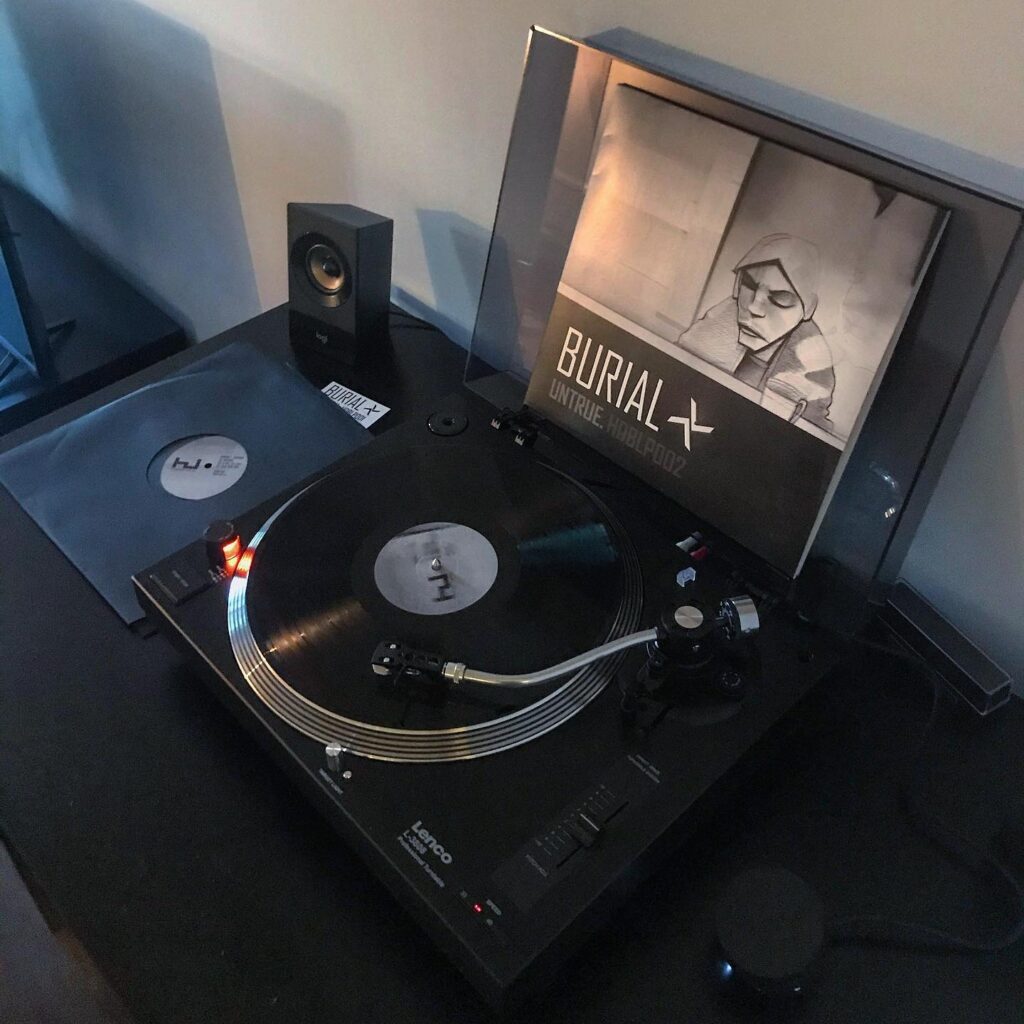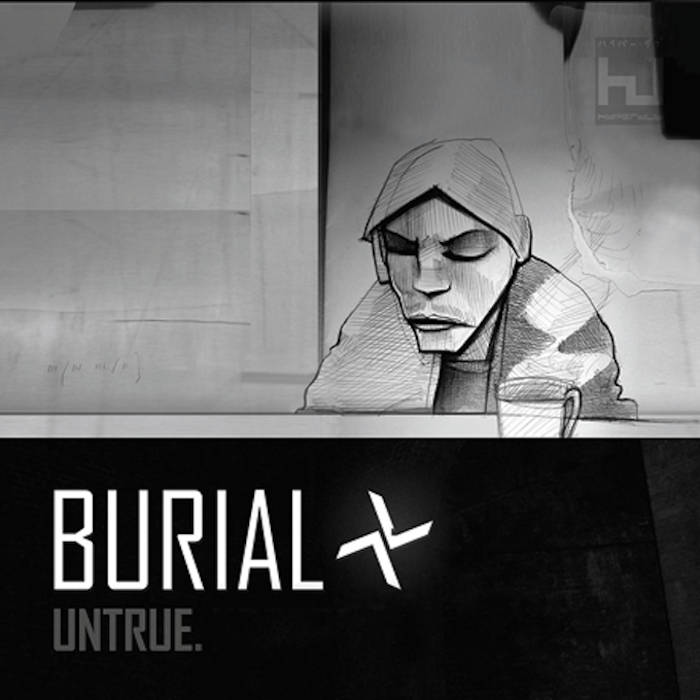VINYLLY! :: Part Three
Whilst there is a lot that has transpired in my personal experience that I can never hope to understand, one of the more galling things has to be about how I can’t seem to look back at the first decade of this new millennium without an intense feeling of utter cringe. Granted, most of that is due to my own indiscretions, but whilst the 1990s was the decade where preening self-reflexive irony proliferated itself throughout pop culture with sneering insouciance, the 2000s was when the toxicity informing that nihilism hit peak meltdown and everything thereafter became simultaneously more inclusive and mean-spirited, informed by the boom of talent-search/scripted-reality TV franchises that were as inescapable in their bald-faced sensationalism as they were entertaining.
It’s not that I don’t understand why the likes of Big Brother or America’s Next Top Model are highly questionable at best with regards to their particularly cruel forms of entertainment, but more how I seemed to actively enjoy the misery they extolled without realising how awful it all was and may never be able to shake the affection I still have for them.

It cannot quite be said that there wasn’t anything from this ten-year-stretch worth celebrating music-wise though, even if the charts seemed to be stocked with dance hits that coasted generously on interpolations from yester-decade. For instance, amidst the nostalgic throwbacks there were quite a few artists who were able to transcend their roots to attain icon-status such as Amy Winehouse and The White Stripes, as well as a burgeoning multi-cultural movement that sought to bring fresh sounds and shapes to pop music such as Damon Albarn’s Gorillaz project. The indie-alternative scene began to embrace synth-pop via the likes of MGMT, LCD Soundsystem and Hot Chip, whilst M.I.A. became the best pop star the decade could have asked for with her heady mix of agit-pop politique and certifiable world-fusion party bangers. For me though, the album that most clearly defines the 2000s is a minimalist future-bass masterwork that managed to tap into post-millennial dread without becoming subsumed by misery and instead found a healing energy in its brutalist abstractions and darkness rather than shallow cynical coolness.
VINYLLY!
#3: Untrue – Burial (2007, Hyperdub/HDBLP002)

Though it is still often disputed in some circles online, the person behind the Burial project is South London born musician Will Bevan, an intensely private electronic music prodigy who found solace splicing together beats and samples to create spectral soundscapes that managed to oscillate with an enervated calm as soothing and tranquil as it is propulsive and sinister, inspired by underground dance music movements such as hardcore, UK garage, jungle and techno.
Upon signing onto fellow DJ/producer Kode9’s Hyperdub label, Burial’s self-titled debut LP was released in 2005 to a feverish response from music journalists and dance music aficionados, its powerful aura capturing the soulful grit of after-hours inner-city nightlife as crunching sound effects and vividly distorted vocals attached themselves to starkly dusty beat signatures and bass rumbles. Bevan’s sound evoked that poignant displacement one can feel on a long night’s journey into day, still able to harness enough momentum to keep moving despite a blanket of sensory diffusion covering everything with a haunted ambivalence. Released just two years after his eponymous effort, 2007’s Untrue finds Bevan refining his technique and opening up his sound to something more emotionally involving, sharpening his beat patterns and syncopations just enough to maintain his inimitable balance of rough-hewn sophistication whilst also elevating his work further.
Utilizing Sound Forge’s audio editing software for each track’s construction, Bevan at first felt pressured to come up with something more intricate and imposing than his premier long-form to impress his listeners with before throwing hours’ worth of work away and retaining a leaner, instinct-driven approach to create something a little more club-friendly that still pulled no punches. It was an endeavour that ended up paying off massively, as much of the album’s drama is bore from its frank minimalism, the space between the muscular beats and disembodied vocals alternating between white-hot tension and calming relief as the soundwaves fall away into sublime nothingness, often accompanied by Burial’s customarily atmospheric sound beds of jangling keys, downpours of rain or hisses collected from dusty vinyl.
One key facet of Bevan’s modus operandi that shines throughout is an unabashed love for hard science-fiction and horror thriller storytelling, which is in clear evidence as early the album’s unnamed intro given its sampling of that unmistakably doom-laden bass synth from Elliot Goldenthal’s score for Alien3 (because of course out of all the films from that franchise, Bevan would sample the one that charted Ellen Ripley’s long dark journey into her soul). Given how Bevan has likened first listening to the underground music of his youth to watching The Terminator as a younger child, the album’s sonic palette of rain-soaked futurism should not come as something surprising, cultivated further in his taking samples from video games drawn from those same influences such as Konami’s Metal Gear Solid series.
Another of Burial’s biggest tricks in making all this as accessible as it is arresting though is how he superlatively enmeshes these nihilist elements with vocal samples from chart-topping pop balladeers such as Beyoncé and Christina Aguilera, their indulgent melismatics chopped and pitch-shifted to evince a new tone, now sounding like lost souls crying out tortured wails from within an immense grinding mechanism. Incidentally, the checklist of samples used on this album became one of the Internet’s first ever pop-sleuth projects for music nerds all over the world, which is just another way how this dark underground album united some lost souls together.
Which is not to say that Untrue casts its emotional meter at rock bottom to never aspire to rise out of its existential mire though. Yes, tracks such as “Archangel” and “Etched Headplate” register as stone-cold classics of beleaguered propulsion, casting such an eerie hold over the listener that all anyone can do in response is dance, or at the very least nod their head in hushed reverence. However, Bevan displays just as impressive a command on the slower, more ambient tracks offering solace from the uncertainties that lurk outside, most notably on the track “In McDonalds”, a shimmering beacon of respite whose heavenliness is given a devastating weight once you realise who it is that Bevan is sampling (as tributes go it is probably the best one this artist has yet inspired, which is saying a f*cking lot). Perhaps even more poignant is the closing track “Raver”, a perfect closing-credits style summation of Untrue’s ethos, reconciling chillingly intimidating frameworks with innately soulful flourishes and modulations in a warm victory lap that acknowledges the traumas of the nights behind us but still looks forward to the promise of more adventures to come, allowing Burial to cast one last salutation to his fellow clubgoers with a graceful signoff that cements Untrue’s place in the pop pantheon as one of electronic music’s most emotionally resonant albums. In harnessing all his myriad personal influences with such a prodigious flair, from club music and video games to pop ballads and science fiction, Bevan created an album that tapped into both the loneliness and the communality of inner-city life, a deeply personal shout out offering emotional solidarity to any and everyone else feeling suffocated by modern life’s brand of chaos. Of course, as is often the case in the fickle world of popular music, the album’s resultant success carried with it a double-edged sword.
Having never felt comfortable with the more promotional aspects of the music industry, Bevan was more than happy to keep an off-grid-style profile as far as his actual legal-name identity was concerned, but with two unanimously praised albums now on his discography, demand for more inconsequential fluff such as interviews and appearances started building, eventually coming to a head when Untrue was nominated for the coveted annual Mercury Prize. Despite a valiant effort to keep schtum for a short while after the nomination announcement, Bevan eventually buckled under the weight of music-rag speculation, which at one point had journalists surmising that Burial was a side-project for established beatsmiths such as Richard D. James or Norman Cook (to which, “nice” and, “are you joking?”). And for finally shilling out to the music press by revealing himself against his wishes to the entire world, Burial ended up losing to Elbow with their album The Seldom Seen Kid (the one with “Hey Jude For Millennials” on it), after which Bevan has not released a full album since.
Not that Burial remained quiet for the past fourteen years since Untrue’s release though, given that he has amassed enough single and EP releases to be able to drop a formidable, decade-spanning retrospective compilation in 2019, as well as numerous collaborations amongst fellow electronic noiseniks, including several tracks with Thom Yorke and former schoolmate Kieran Hebden, a.k.a. Four Tet, the latter of whom still often gets confused for being the progenitor of the Burial project. Aside from these intermittent releases since his era-defining double-tap of long-plays, Bevan has kept as admirably low a profile that an underground dancefloor genius can possibly have, the lack of an intensive recording and releasing schedule allowing him to explore ever darker and more sublime avenues of forlorn euphoria with a more organic and intuitive work ethic. Untrue still stands tall amongst most other electronic albums, née albums in general, to see release in the 2000s though, finding the fraught connective tissue between bass music, techno, ambient electronica and dubstep to provide a soulful escapism for the many wounded hearts still beating with mournful hope in these cold, modern times.
Thank you Burial; please keep the tunes coming!


